The Quran and the Torah are two of the most significant scriptures in human history. Both are revered as divine revelations in Islam and Judaism, forming the foundation of spiritual, moral, and legal guidance for billions of people. Muslims believe that the Torah (Tawrah) was revealed to Prophet Musa (Moses, عليه السلام), while the Quran was revealed to Prophet Muhammad ﷺ as the final and preserved word of Allah.
This article provides a detailed comparison of the Quran and the Torah, exploring their origins, messages, preservation, similarities, and differences. Along the way, we will highlight important Quranic verses, Hadiths, and references, ensuring a clear understanding of how these scriptures connect yet differ.
The Quran
The Quran is believed by Muslims to be the direct word of Allah (God), revealed to Prophet Muhammad ﷺ over a period of 23 years through Angel Jibreel (Gabriel). It is the final and complete revelation from Allah, sent to Prophet Muhammad ﷺ through Angel Jibreel. It is preserved word-for-word in Arabic and serves as a timeless guide for all of humanity in matters of faith, morality, and law.
Quranic Reference:
اللَّهُ نَزَّلَ أَحْسَنَ الْحَدِيثِ كِتَابًا مُّتَشَابِهًا مَّثَانِيَ
Transliteration: Allāhu nazzala aḥsana al-ḥadīthi kitāban mutashābihan mathāniya
Translation: “Allah has sent down the best statement: a Book consistent in its oft-repeated themes.” (Surah Az-Zumar 39:23)
This verse highlights the divine perfection of the Quran, describing it as the best statement revealed by Allah. Its verses are consistent, harmonious, and repeatedly guide believers toward reflection, faith, and righteous living.
The Quran is considered:
- The final revelation.
- Preserved word-for-word in its original Arabic.
- A guide for all humanity until the Day of Judgment.
The Torah
The Torah (Tawrah) was revealed by Allah to Prophet Musa (Moses, عليه السلام). It contained divine laws, guidance, and commandments for the Children of Israel (Bani Isra’il). It is a divine scripture for the guidance and light for the Children of Israel. It contained laws, commandments, and teachings, though Muslims believe its original form was later altered over time.
Quranic Reference:
إِنَّا أَنزَلْنَا التَّوْرَاةَ فِيهَا هُدًى وَنُورٌ
Transliteration: Innā anzalnā at-tawrāta fīhā hudan wa nūr
Translation: “Indeed, We sent down the Torah, in which was guidance and light.” (Surah Al-Ma’idah 5:44)
This verse emphasizes that the Torah was a true revelation from Allah, providing guidance and light for the Children of Israel. It served as a source of divine law and wisdom before the Quran was revealed as the final scripture.
Muslims believe the original Torah was from Allah but over time, parts of it were changed, altered, or lost, as mentioned in the Quran.
Quranic Reference on Alteration:
فَوَيْلٌ لِّلَّذِينَ يَكْتُبُونَ الْكِتَابَ بِأَيْدِيهِمْ ثُمَّ يَقُولُونَ هَـٰذَا مِنْ عِندِ اللَّهِ
Transliteration: Fa-waylun lilladhīna yaktubūna al-kitāba bi-aydīhim thumma yaqūlūna hādhā min ‘indi Allāh
Translation: “So woe to those who write the Scripture with their own hands, then say, ‘This is from Allah.’” (Surah Al-Baqarah 2:79)
This verse warns against the corruption and alteration of divine scriptures, condemning those who change Allah’s words for personal gain. It highlights the seriousness of falsely attributing man-made writings to Allah.
Similarities Between the Quran and Torah
Despite differences, the Quran and Torah share important similarities:
- Divine Origin: Both are revelations from Allah.
- Monotheism: Both emphasize belief in One God.
- Moral and Ethical Guidance: Both contain divine laws regarding justice, honesty, charity, and worship.
- Prophets and Stories: Both scriptures mention prophets like Adam, Noah, Abraham, and Moses.
- Laws and Commandments: The Torah outlines the Mosaic law, while the Quran establishes Shariah.
Quran on confirming previous scriptures:
وَأَنزَلْنَا إِلَيْكَ الْكِتَابَ بِالْحَقِّ مُصَدِّقًا لِّمَا بَيْنَ يَدَيْهِ مِنَ الْكِتَابِ
Transliteration: Wa anzalnā ilayka al-kitāba bil-ḥaqqi muṣaddiqan limā bayna yadayhi mina al-kitāb
Translation: “And We have revealed to you the Book in truth, confirming what was before it of the Scripture.” (Surah Al-Ma’idah 5:48)
This verse affirms that the Quran was revealed with truth, confirming the original guidance found in previous scriptures. It shows the Quran’s role as both a guardian and a final authority over earlier revelations.
Differences Between the Quran and Torah
While both come from Allah, there are key distinctions:
Preservation
Quran: Preserved word-for-word in Arabic since its revelation.
Torah: Altered over time, with different versions existing today.
Language
Quran: Revealed in Arabic.
Torah: Revealed in Hebrew.
Audience
Quran: For all of humanity until the end of time.
Torah: For the Children of Israel specifically.
Completeness
Quran: Final and complete message of Allah.
Torah: Part of earlier revelations, later replaced by the Quran as the final guidance.
Quranic Evidence:
وَمَا أَرْسَلْنَاكَ إِلَّا كَافَّةً لِّلنَّاسِ
Transliteration: Wa mā arsalnāka illā kāffatan lil-nās
Translation: “And We have not sent you except to all of mankind.” (Surah Saba 34:28)
This verse highlights that Prophet Muhammad ﷺ was sent as a messenger for all of humanity, not just a specific nation. His message, through the Quran, is universal and timeless guidance for every people and generation.
Prophets in the Quran and Torah
Both scriptures highlight the role of prophets as messengers of God. Prophet Musa (عليه السلام) is central to the Torah, while Prophet Muhammad ﷺ is the final Messenger in the Quran.
Hadith Reference:
النَّبِيُّونَ إِخْوَةٌ لِعَلَّاتٍ، أُمَّهَاتُهُمْ شَتَّى، وَدِينُهُمْ وَاحِدٌ
Transliteration: Al-anbiyā’u ikhwatun li-‘allātin, ummahātuhum shattā, wa dīnuhum wāḥid
Translation: “The prophets are paternal brothers; their mothers are different, but their religion is one.” (Sahih al-Bukhari & Sahih Muslim)
This hadith beautifully explains the unity of all prophets. Though they came at different times, places, and to different nations with varying laws, their core message was the same: the worship of Allah alone. It emphasizes the shared foundation of Tawheed (monotheism) among all revealed religions.
Concept of God in Both Scriptures
Both the Torah and the Quran emphasize strict monotheism.
Quran:
قُلْ هُوَ اللَّهُ أَحَدٌ اللَّهُ الصَّمَدُ
Transliteration: Qul huwa Allāhu aḥad. Allāhu aṣ-ṣamad.
Translation: “Say, He is Allah, One. Allah, the Eternal Refuge.” (Surah Al-Ikhlas 112:1-2)
Torah (Deuteronomy 6:4):
“Hear, O Israel: The Lord our God, the Lord is One.”
Both the Quran and the Torah emphasize the absolute oneness of God, rejecting any form of partners or equals. In Surah Al-Ikhlas, Allah is described as uniquely One and the Eternal Refuge, while the Torah in Deuteronomy also declares the oneness of the Lord. These verses highlight the shared foundation of monotheism between Islam and Judaism, showing that the core message of all prophets was the worship of a single, true God.
Honoring All Scriptures, Following the Final One
The Quran and the Torah both originate from Allah, guiding humanity towards worship, justice, and righteousness. The Torah was revealed to Musa (عليه السلام) for the Children of Israel, while the Quran is the final revelation for all of mankind, preserved in its original form.
Muslims are required to believe in all previous scriptures, including the Torah, as part of their faith. However, they hold the Quran as the ultimate and final word of God.
Here is a beautiful Quranic reminder:
آمَنَ الرَّسُولُ بِمَا أُنزِلَ إِلَيْهِ مِن رَّبِّهِ وَالْمُؤْمِنُونَ ۚ كُلٌّ آمَنَ بِاللَّهِ وَمَلَائِكَتِهِ وَكُتُبِهِ وَرُسُلِهِ
Transliteration: Āmana ar-rasūlu bimā unzila ilayhi min rabbihi wal-mu’minūn, kullun āmana billāhi wa malā’ikatihi wa kutubihi wa rusulihi
Translation: “The Messenger has believed in what was revealed to him from his Lord, and so have the believers. All of them have believed in Allah, His angels, His books, and His messengers.” (Surah Al-Baqarah 2:285)

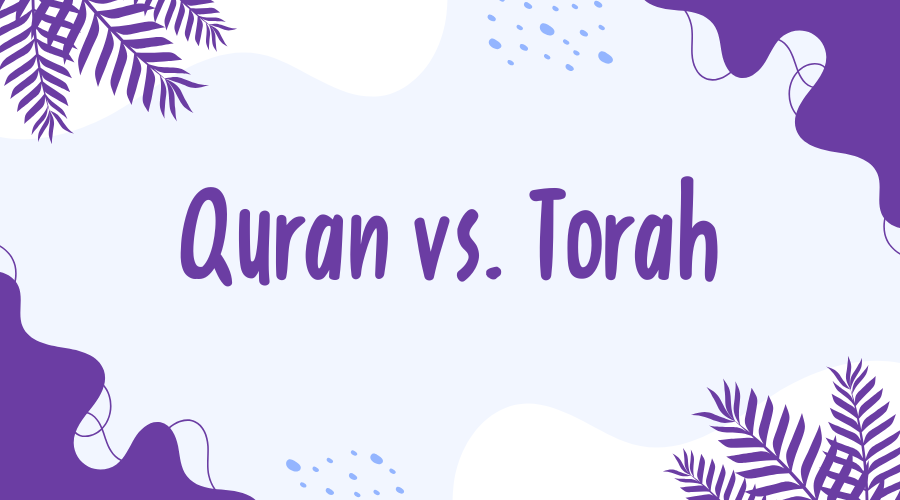
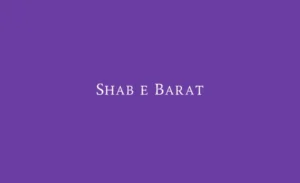
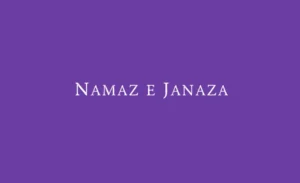
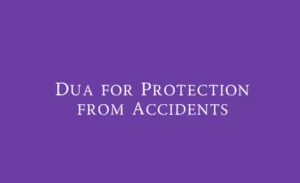
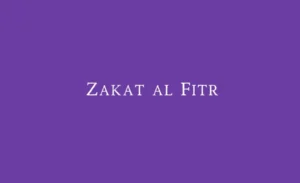

30 Responses
Thanks I have recently been looking for info about this subject for a while and yours is the greatest I have discovered so far
Normally I do not read article on blogs however I would like to say that this writeup very forced me to try and do so Your writing style has been amazed me Thanks quite great post
I just wanted to express my gratitude for the valuable insights you provide through your blog. Your expertise shines through in every word, and I’m grateful for the opportunity to learn from you.
Hi i like the piece of article you wrote
I just could not leave your web site before suggesting that I really enjoyed the standard information a person supply to your visitors Is gonna be again steadily in order to check up on new posts
Its like you read my mind You appear to know so much about this like you wrote the book in it or something I think that you can do with a few pics to drive the message home a little bit but instead of that this is excellent blog A fantastic read Ill certainly be back
certainly like your website and I will definitely come back again
Your blog is a beacon of light in the often murky waters of online content. Your thoughtful analysis and insightful commentary never fail to leave a lasting impression. Keep up the amazing work!
Attractive section of content I just stumbled upon your blog and in accession capital to assert that I get actually enjoyed account your blog posts Anyway I will be subscribing to your augment and even I achievement you access consistently fast
Somebody essentially help to make significantly articles Id state This is the first time I frequented your web page and up to now I surprised with the research you made to make this actual post incredible Fantastic job
Hello Neat post.
Your blog is a breath of fresh air in the often stagnant world of online content. Your thoughtful analysis and insightful commentary never fail to leave a lasting impression. Thank you for sharing your wisdom with us.
hiI like your writing so much share we be in contact more approximately your article on AOL I need a specialist in this area to resolve my problem Maybe that is you Looking ahead to see you
Your blog is a shining example of excellence in content creation. I’m continually impressed by the depth of your knowledge and the clarity of your writing. Thank you for all that you do.
Your writing has a way of resonating with me on a deep level. It’s clear that you put a lot of thought and effort into each piece, and it certainly doesn’t go unnoticed.
Your passion for your subject matter shines through in every post. It’s clear that you genuinely care about sharing knowledge and making a positive impact on your readers. Kudos to you!
Hi I think that I saw you visited my web site thus I came to Return the favour I am attempting to find things to improve my web site suppose its ok to use some of your ideas?
Your blog is a constant source of inspiration for me. Your passion for your subject matter shines through in every post, and it’s clear that you genuinely care about making a positive impact on your readers.
Its like you read my mind You appear to know a lot about this like you wrote the book in it or something I think that you could do with some pics to drive the message home a little bit but instead of that this is fantastic blog An excellent read I will certainly be back
Wonderful beat I wish to apprentice while you amend your web site how could i subscribe for a blog web site The account aided me a acceptable deal I had been a little bit acquainted of this your broadcast provided bright clear idea
I’ve been following your blog for quite some time now, and I’m continually impressed by the quality of your content. Your ability to blend information with entertainment is truly commendable.
Hi my family member I want to say that this post is awesome nice written and come with approximately all significant infos I would like to peer extra posts like this
Your writing has a way of resonating with me on a deep level. I appreciate the honesty and authenticity you bring to every post. Thank you for sharing your journey with us.
Your blog is a testament to your dedication to your craft. Your commitment to excellence is evident in every aspect of your writing. Thank you for being such a positive influence in the online community.
Excellent blog here Also your website loads up very fast What web host are you using Can I get your affiliate link to your host I wish my web site loaded up as quickly as yours lol
Hey there You have done a fantastic job I will certainly digg it and personally recommend to my friends Im confident theyll be benefited from this site
I just wanted to express my gratitude for the valuable insights you provide through your blog. Your expertise shines through in every word, and I’m grateful for the opportunity to learn from you.
Hi i think that i saw you visited my web site thus i came to Return the favore Im attempting to find things to enhance my siteI suppose its ok to use a few of your ideas
Your blog is a treasure trove of valuable insights and thought-provoking commentary. Your dedication to your craft is evident in every word you write. Keep up the fantastic work!
Your articles never fail to captivate me. Each one is a testament to your expertise and dedication to your craft. Thank you for sharing your wisdom with the world.